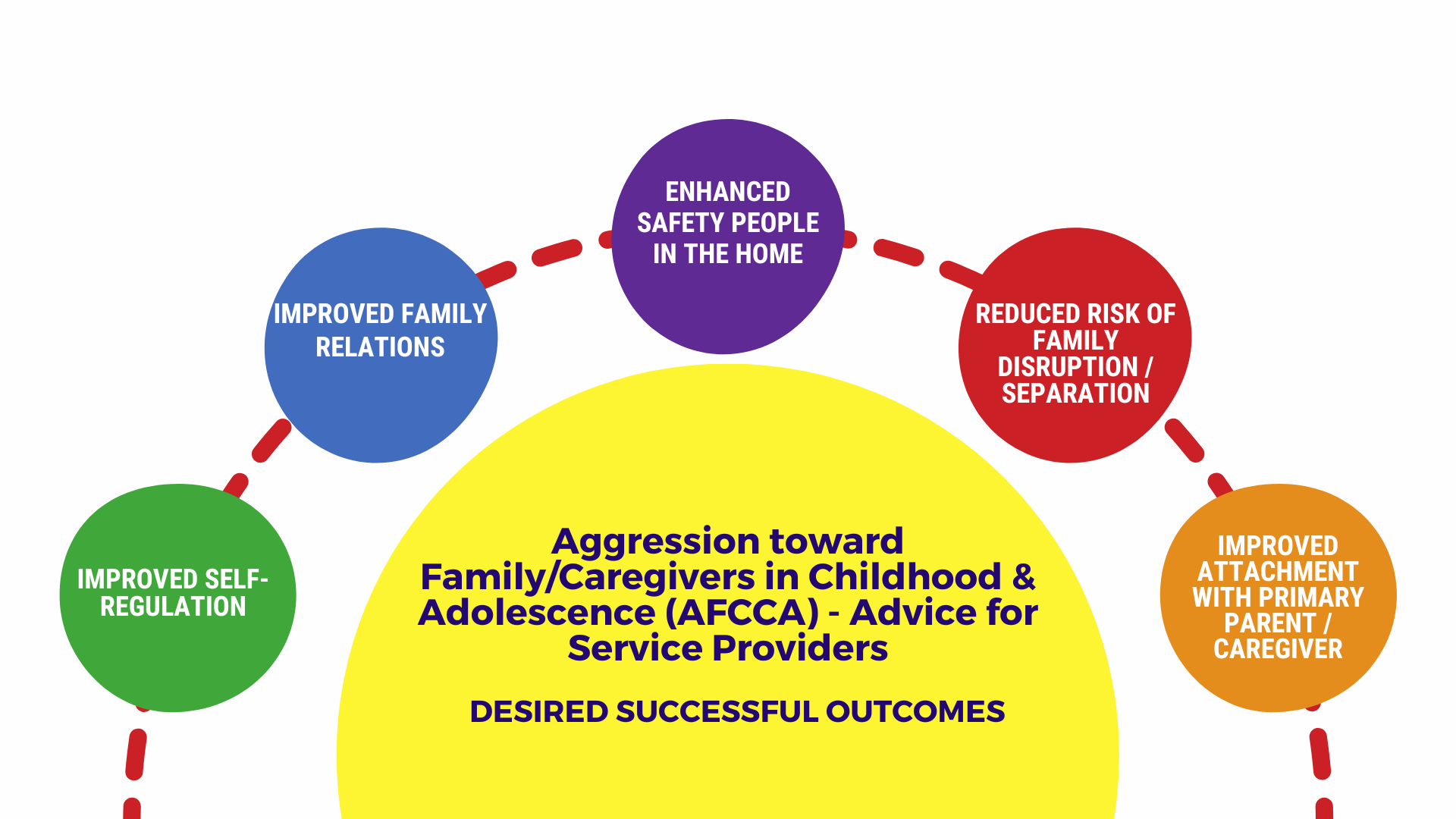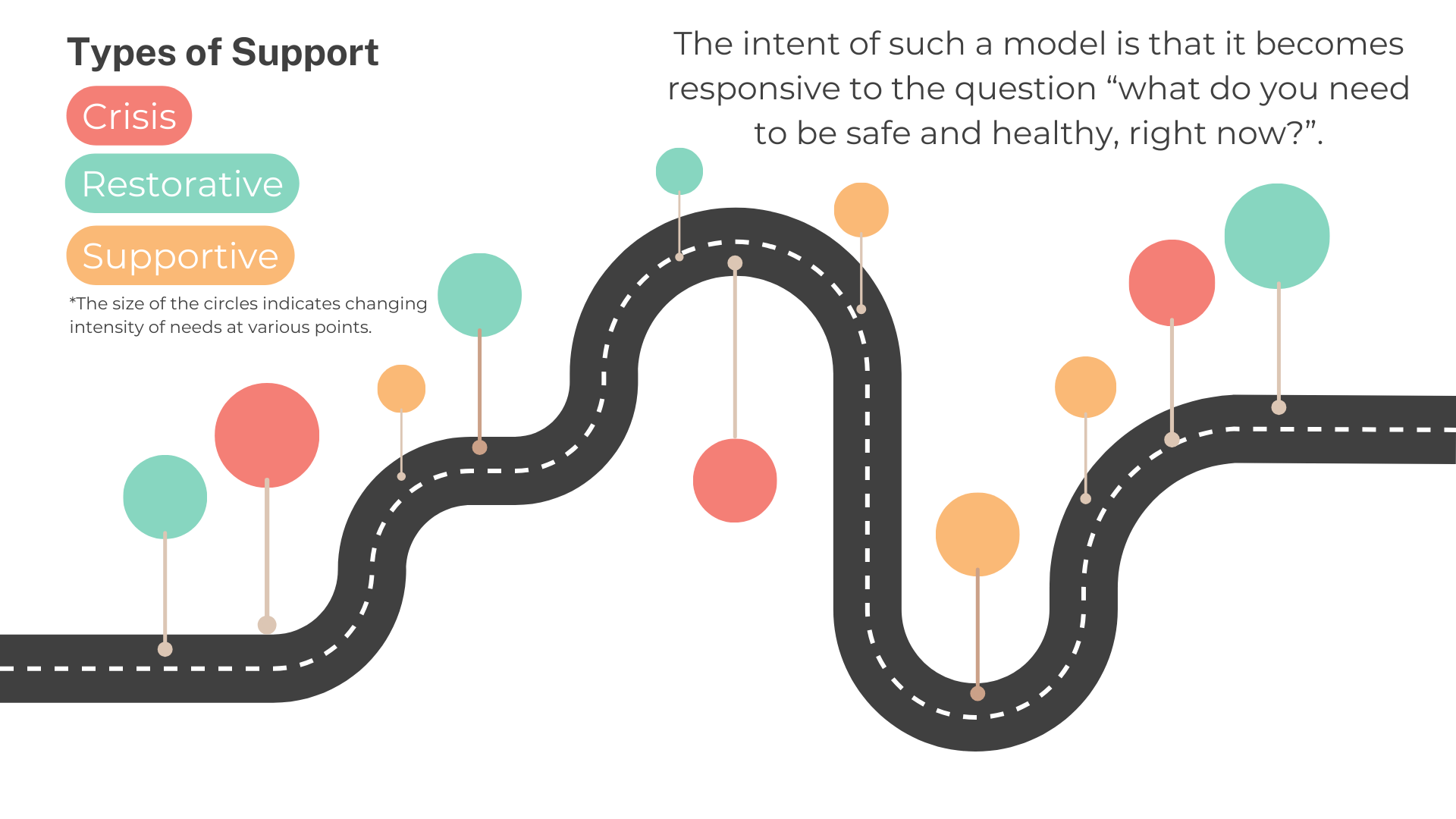Parenting Concerns: AFCCA
Parenting Concerns: Aggression towards Family and Caregivers in Childhood and Adolescence (AFCCA)
The National Consortium on Aggression Towards Family and Caregivers in Childhood and Adolescence (n.d.) describes Aggression towards Family and Caregivers in Childhood and Adolescence (AFCCA) as behaviour such as physical harm or threats to harm, aggressive language, posturing, property damage, and/or risky behaviour outside of the home.

This behaviour may cause physical and/or psychological harm of family members in the home, including those present and witnessing these incidents. A national consultation completed in 2021 found that over 100 caregivers were experiencing daily or weekly occurrences of aggression in their homes (The National Consortium on Aggression Towards Family and Caregivers in Childhood and Adolescence, 2021).
Aggressive behaviour can be seen as a form of communication in which the child or adolescent is expressing a need or want through a response that can cause harm (CanFASD, 2024). Various factors can contribute to a child using aggression as communication, such as family dynamics, parenting styles, adverse childhood experiences, and/or difficulty with regulating emotions and behaviours (Toole-Anstey, 2023). According to The National Consortium on AFCCA (2021), many caregivers had reported their children having diagnoses that influence behaviour, such as fetal alcohol spectrum disorder (FASD), autism spectrum disorder (ASD), attachment/reactive detachment disorders, and/or sensory processing disorders (SPD).
As a caregiver, navigating situations involving aggressive behaviour can be challenging; it is important for caregivers to have access to adequate, family-centered supports and resources. Additionally, finding effective strategies can assist in navigating these situations. All individuals and families are unique and finding the best strategies to address aggressive behaviour for each child requires time (Newbold, n.d.).
According to Newbold (n.d.), some approaches that may assist with de-escalation when experiencing AFCCA:
- Maintaining a calm tone, body language, and using clear and simple language
- Providing the individual space; attempting to restrain the individual can further escalate the behaviour
- Reducing sensory stimuli (dim lights, reduce noise/sound, etc.) if sensory processing is a contributor to the aggressive behaviour
If you feel that you or your loved ones are in imminent danger, consider moving yourselves to a safe area and take appropriate steps such as using the safety plan that has been developed, or calling for emergency assistance if there is risk of harm to the individual or those around them.
While there is no specific treatment to address aggressive behaviour, a number of interventions can be tried to minimize its occurrence. Connecting with other parents or caregivers through clinician-led peer support programs can also assist in gaining strategies to address aggressive behaviours and reduce the isolation experienced by caregivers (Toole-Anstey, 2023).

If you are looking for help to manage AFCCA in your home, practitioners at Empowering EveryMind can provide outreach, social work, and/or occupational therapy services to support with:
- Developing safety plans
- Self-regulation/behavioural, social, and emotional skill building for children
- Strategies for modulating sensory and cognitive processing
- Psychoeducation
- Individual or family therapy sessions
- Training for caregivers and service providers
Reference(s)
CanFASD. (2024). FASD and Aggression: From Conceptualization to Clinical Best Practice.
Newbold, Y. (n.d.). Violent and Challenging Behaviour - The Basics. Newbold Hope.
The National Consortium on Aggression Towards Family and Caregivers in Childhood and Adolescence. (n.d.) What is AFFCA?
Toole-Anstey, C., Keevers, L., & Townsend, M. L. (2023). A Systematic Review of Child to Parent Violence Interventions. Trauma, Violence, & Abuse, 24(2), 1157-1171.













